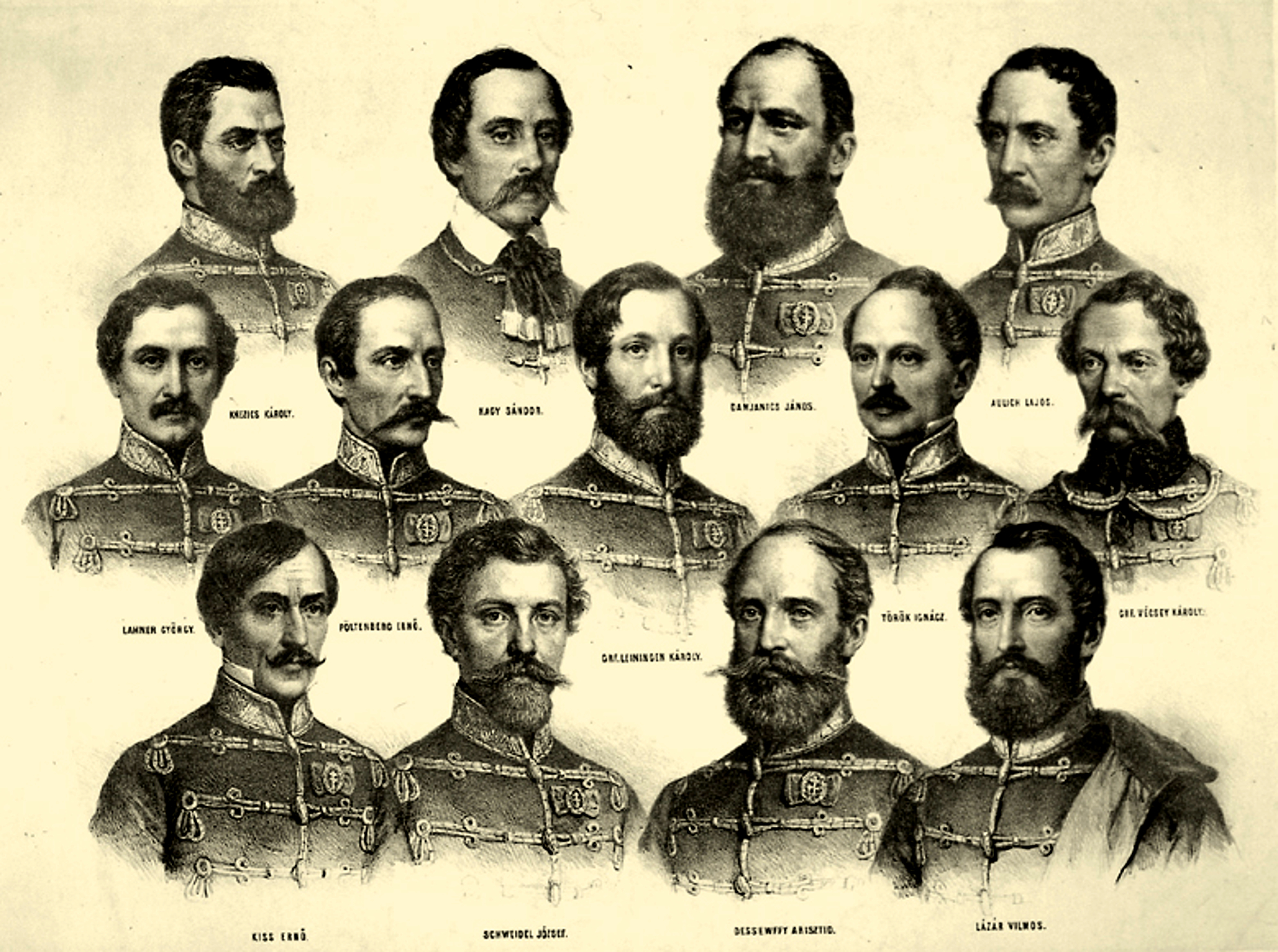In a historic speech on March 3, 1848, shortly after news of the revolution in Paris had arrived, Lajos Kossuth demanded parliamentary government for Hungary and constitutional government for the rest of Austria. The Revolution started on March 15, 1848, and after military setbacks in the winter and a successful campaign in the spring, Kossuth declared independence on April 19, 1849. By May 1849, the Hungarians controlled all of the country except Buda, which they won after a three-week bloody siege. The hopes of ultimate success, however, were frustrated by the intervention of Russia. After all appeals to other European states failed, Kossuth abdicated on August 11, 1849, in favor of Artúr Görgey, whom he thought was the only general capable of saving the nation. On August 13, 1849, Görgey signed a surrender at Világos to the Russians, who handed the army over to the Austrians. At the insistence of the Russians, Görgey was spared. The Austrians took reprisals on other officers of the Hungarian army.
The thirteen Hungarian generals were executed by hanging at Arad on October 6, 1849, with the exception of Arisztid Dessewffy and two others, because of their friendship with the Prince of Luxembourg. Hanging was deemed a form of humiliation. On the same day, Count Lajos Batthyány (1806–1849), the first Hungarian prime minister, was executed in Pest at an Austrian military garrison. Kossuth fled to the Ottoman Empire; he maintained that Görgey alone was responsible for the failure of the rebellion, calling him “Hungary’s Judas”. Others, looking at the impossible situation Görgey was given, have been more sympathetic. They have said that, given the circumstances, he was left with no option other than surrender.
Hungarians have come to regard the thirteen rebel generals as martyrs for defending the cause of freedom and independence for their people. Not all the generals were ethnic Hungarians, but they fought for the cause of an independent and, for its age, liberal Hungary. Arad is remembered on October 6 as the place of the day of mourning for the Hungarian nation.
The generals
Lajos Aulich (1793 – 1849)
János Damjanich (1804 – 1849)
Arisztid Dessewffy (1802 – 1849)
Ernő Kiss (1799 – 1849)
Károly Knezich (1808 – 1849)
György Lahner (1795 – 1849)
Vilmos Lázár (1815 – 1849)
Károly Leiningen-Westerburg (1819 – 1849)
József Nagy-Sándor (1804 – 1849)
Ernő Poeltenberg (1814 – 1849)
József Schweidel (1796 – 1849)
Ignác Török (1795 – 1849)
Károly Vécsey (1807 – 1849)
source: military-history.fandom
Egészítsétek ki a szöveget a megadott szavakkal. Vigyázat, kettővel több opció van, mint amennyire szükségetek van.
capable – controlled – declared – failed – fled – handed – intervention – reprisals – setbacks – siege – surrender – uprisal
The Revolution started on March 15, 1848, and after military 1.____ in the winter and a successful campaign in the spring, Kossuth 2.____ independence on April 19, 1849. By May 1849, the Hungarians 3.____ all of the country except Buda, which they won after a three-week bloody 4.____. The hopes of ultimate success, however, were frustrated by the 5.____ of Russia. After all appeals to other European states 6.____, Kossuth abdicated on August 11, 1849, in favor of Artúr Görgey, whom he thought was the only general 7.____ of saving the nation. On August 13, 1849, Görgey signed a 8.____ at Világos to the Russians, who 9.____ the army over to the Austrians. At the insistence of the Russians, Görgey was spared. The Austrians took 10.____ on other officers of the Hungarian army.
keys/megoldások:
1.setbacks; 2. declared; 3. controlled; 4. siege; 5. intervention; 6.failed; 7. capable; 8. surrender; 9. handed; 10. reprisals
Vocabulary
| to demand | követelni |
| constitutional government | alkotmányos kormány |
| military setbacks | katonai kudarcok |
| successful | sikeres |
| declared independence | kikiáltotta a függetlenséget |
| except | kivéve |
| ultimate | végső |
| intervention | beavatkozás |
| appeals | felhívások, kérések |
| to fail | kudarcot vallani |
| to abdicate | lemondani |
| in favor of sy | valaki javára |
| capable
siege |
alkalmas
ostrom |
| to sign a surrender | aláírni a fegyverletételt |
| At the insistence of sy | valaki nyomására |
| to spare sy | megkímélni valakit, kegyelmet adni valakinek |
| to take reprisals on | megtorló akciókat indítani |
| to execute | kivégezni |
| to deem humiliation | megalázónak tekinteni |
| military garrison | katonai helyőrség |
| to flee-fled-fled | elmenekülni |
| to maintain | (állítást) fenntartani |
| circumstances | körülmények |
| surrender | megadás |
| to come to regard…as | úgy tekinteni (rájuk), mint |
| to defend | megóvni, megvédeni |





